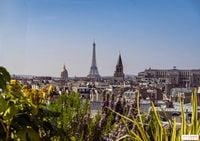As May 1st approaches, a significant debate surrounding the meaning and observance of "Labor Day" in South Korea continues to unfold. This day, which is celebrated as "Labor Day" in Korea, is distinct from the international observance known as "International Workers' Day." The origins of Labor Day trace back to the Haymarket Affair in Chicago in 1886, where laborers protested for an eight-hour workday, leading to a violent confrontation with police. This event catalyzed the establishment of May 1st as a day to honor workers worldwide.
In South Korea, the first Labor Day event was held in 1923 during the Japanese colonial period, marking the beginning of a long history of labor advocacy in the country. However, the name "Labor Day" was officially adopted in 1963, during a period of military rule under President Park Chung-hee. The term "labor" was preferred over "workers" to convey a more compliant image of work, reflecting the political climate of the time.
Today, Labor Day is recognized as a paid holiday for private sector workers, but it is not classified as a legal holiday for public officials. This distinction means that while many private companies may close their doors, public institutions such as city halls and schools operate as usual. This inconsistency raises questions about the equitable treatment of workers across different sectors.
According to the Labor Standards Act, if private sector employees work on Labor Day, they are entitled to receive 250% of their usual wage, which includes a base pay plus holiday work allowances. For instance, if a worker's daily wage is 100,000 won, working on Labor Day would yield a total of 250,000 won. However, many workers, particularly in small businesses with fewer than five employees, often find themselves without the proper compensation or even expected time off.
Recent surveys highlight the ongoing challenges faced by workers on Labor Day. A 2023 survey revealed that 30.4% of workers reported working on Labor Day, with a significant number of them coming from small businesses. Alarmingly, 39.0% of those who worked did not receive any holiday pay or compensatory leave, while 37.5% received only partial compensation. The following year's survey showed a slight decrease in attendance to 24.3%, yet still, a significant portion of workers remained on the job without adequate remuneration.
These statistics underscore the disparity in labor rights and protections, particularly for those in precarious employment situations. The Ministry of Labor has identified special employment categories, such as self-employed individuals and workers in small businesses, as those who frequently lack access to paid holiday protections.
In light of these ongoing issues, Democratic Party member Lee Yong-woo has proposed amendments to the Labor Day Establishment Act, aiming to change the name from "Labor Day" back to "Labor Day" to better reflect the modern understanding of labor as a fundamental human right. Lee argues that the term "worker" carries outdated connotations from the industrial era and does not adequately represent the value of labor in today's society. He believes that recognizing May 1st as a public holiday for all workers, including public officials and teachers, is essential for promoting workers' rights and welfare.
Lee's proposal also includes changing the name of "Industrial Accident Labor Day" to "Industrial Accident Workers' Day," further emphasizing the need for a more inclusive approach to labor rights. This change is seen as a necessary step towards acknowledging the evolving nature of work and the rights of all individuals engaged in labor.
While Labor Day in South Korea has evolved over the decades, the recognition and observance of this day continue to spark discussions about workers' rights and the need for reform. As the country moves towards a more equitable labor system, the voices of those still working on Labor Day without proper recognition and compensation must not be overlooked.
Internationally, Labor Day is celebrated in various forms. In the United States, Labor Day is observed on the first Monday of September as a federal holiday, while many European countries, including France and Germany, recognize May 1st as a legal holiday with widespread participation in protests and celebrations advocating for workers' rights. In contrast, countries like Japan do not have an official Labor Day but recognize similar holidays, reflecting the diverse cultural contexts surrounding labor observance.
As South Korea approaches another Labor Day, the conversation surrounding labor rights and the future of work remains critical. With proposed legislative changes on the horizon, the hope is that this year’s observance will not only honor the contributions of workers but also pave the way for a more just and equitable labor landscape.
![근로자이지만 근로자가 아니라는 ‘근로자의 날’ 이야기 [해시태그]](https://thumbor.evrimagaci.org/gfz4OjnpMB3k-2LGTvDFqelTsEs=/200x0/tpg%2Fsources%2Fa106bbc7-3ca8-4250-ba62-03c77566d12f.jpeg)




